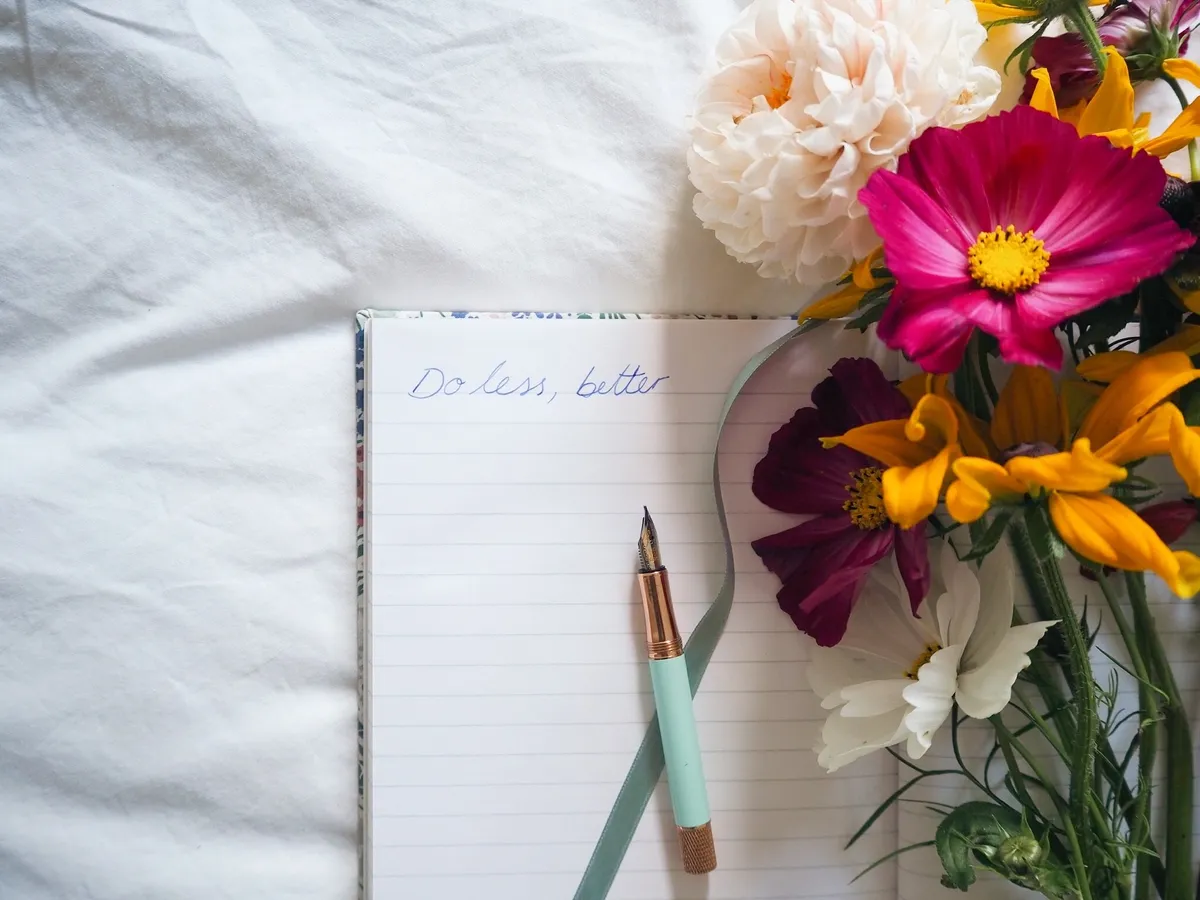Slow and sustainable wins the race
Work Smarter, Not Harder With These 3 Productivity Tips

Sophie is a freelance writer living in a cosy cottage in the South West of England on the edge of the moor. She spends her days writing articles on everything from slow living and conscious consumerism to mental health, alongside her work teaching creatives how to use intuitive SEO and copywriting to tell their stories and connect with their ideal audience online. She loves adventures in beautiful places, believes in the power of empathy, and loves to curl up by the fire with a good book and a hot chocolate.
In a culture that's constantly connected, it's easy to feel like we should be working All. The. Time. In fact, studies show that many of us are spending way more time working than we realize. Work is bleeding into our sleep and downtime as our boundaries become blurred by all-hours email access, and an unhealthy work culture that sees rest as a symptom of laziness, despite plenty of evidence that sleep is integral to our health and wellness.
But what if blurring the lines between work time and leisure time is not only having a negative impact on our quality of life, but also on our productivity? Recent studies conducted in the UK and New Zealand show that working less could actually result in higher productivity rates in certain circumstances.
Entrepreneur and award-winning blogger Beth Kirby is familiar with this tension many of us experience around work and rest. She's a believer in working smarter, not harder (or longer hours), and advocates for a slow and sustainable approach to work as well as life. We asked Beth to share her best time management and productivity tips to help us win back more time in our weeks and embrace a slower, more fulfilling pace of life.
Make a Plan
It might seem counter-intuitive at first, but a vital step in reclaiming more time for rest and play is to plan and schedule out your time accordingly. Beth says she's able to work less and get better results because she's highly strategic about what she does in her limited working time. Her free goal-setting workbook can help you reverse-engineer your daily schedule based on your bigger-picture goals and purpose. "It's easier to focus on the things that will help you reach your goals and forget the rest," says Beth. "Most people don't make a map, so there's no clarity. They spin their wheels and end up busy, not productive."
Work Smarter, Not Harder
Having your whole working year mapped out and being aware of the busy seasons can mean you adopt a slower pace during certain seasons without feeling guilty. It also means that you're less likely to find yourself scrambling to get things done at the last minute, which can result in working unexpectedly long hours and then burning out. Making decisions about your work in advance also helps you to focus on quality over quantity, allowing you to be strategic about what you do so that a smaller amount of work can have a much bigger impact.
Beth also advises paying attention to the times you find yourself repeating information, because this might be a sign you could put in some time creating a resource that shares all of that information in one place, saving you time in the future. "We need to think more long-term, instead of just replicating work," she says. Finding herself teaching the same thing over and over again, for example, inspired her to create her successful online program, Instagram to Influence.
Listen to Your Needs
Remember that you're not a machine, and that your energy ebbs and flows throughout the days, weeks, months, and years. Beth has found that adapting her schedule to her needs helps her to do her best work in a guilt-free way. "I work in very strategic concentrated bursts when I'm at my peak, and I can produce so much then," Beth shares.
"It sounds cliché, but you have to honor your own timeline," she says. "Different people have different stamina and a different pace that works for them. I'm actually someone with incredibly low stamina for work — I have mental health issues, which means that if I go down I can't work, my brain just isn't able to focus. I've tried to create a business around my weaknesses. If I need to crash, I need to crash. And I even plan [my big launches] for seasons, because I know my own mental health cycles."
The key to working less but better? "Find a rhythm that's sustainable for you, and know that it can change in different seasons," she adds.
Image courtesy of the author



















